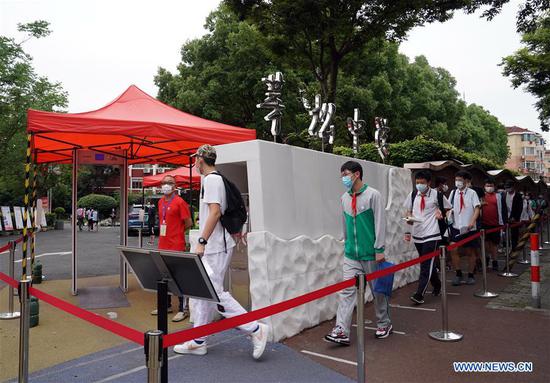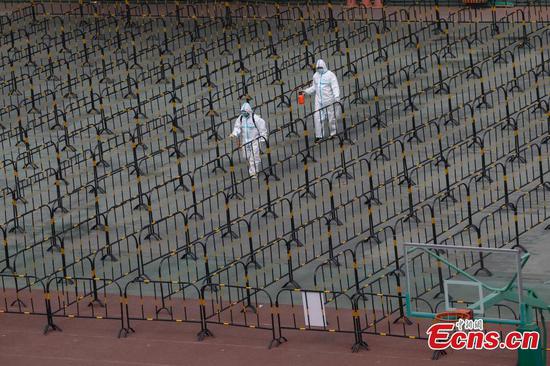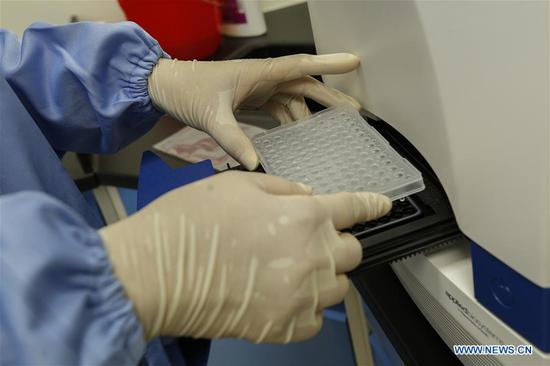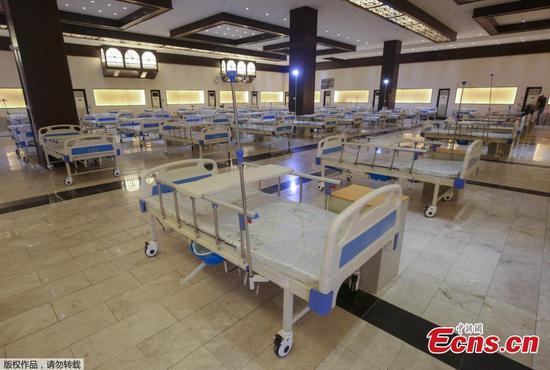
The Shoku-tei Sushi restaurant begins operating in Shenzhen, Guangdong province, on June 3, 2020. [Photo provided to China Daily]
Young diners targeted
In 2018, Michelin-starred chef Li Dong started planning his new restaurant, Superfly. It took him and his team a year to finalize the concept for the business-an informal Japanese-style izakaya outlet specializing in cuisine from Sichuan province.
Located in the Sanlitun area of Beijing, Li hopes that Superfly can become popular among young customers.
The business had a soft opening in January, before closing for four months. Li and his team carried out several food tastings to perfect every dish before the official opening in June.
"In addition to testing our dishes, all the staff have been busy during the past two months helping other restaurants with takeout services," Li said.
Superfly manager Wang Shuzhen said business during weekends is better than on weekdays and customers like the pairing of cocktails and Sichuan cuisine.
"Clients who visit us frequently have all said they will return and bring friends," Wang said.
In Shanghai, Carrefour China, which was acquired by e-commerce giant Suning last year, opened its first restaurant on June 16.
The 600-square-meter space, located in a Carrefour supermarket in the Gubei area, seats 200 diners. All the food is made from the supermarket's own products, and the average cost of a meal is a few dozen yuan.
According to Beijing Business Today, Carrefour will open a branch in Chongqing and more than 100 outlets nationwide this year.
Haoyingxiong, the fresh-oyster buffet chain based in Chengdu, capital of Sichuan, opened its first two branches in Beijing this month, with long lines forming at both.
Wang Jingli, 34, owner of the outlets, said, "The oyster buffet is new to Beijing diners, and the oysters can be barbequed or steamed."
Shipped from Rushan, Shandong province, each day, the oysters are served within four hours of arrival.
"About 80 percent of our clients are males, compared with 80 percent of females at my other restaurants, which focus on Sichuan hotpot," Wang said.
Both Beijing locations used to be occupied by other restaurants. Construction of the branches started in April and Wang sent his team to study culinary skills in Chengdu, followed by a two-week quarantine period on returning to Beijing.
Business at the new eateries is better than at his other restaurants in the capital, which are slowly recovering from the pandemic. Wang is preparing to open four other Haoyingxiong branches in Beijing.
"The new concept is popular and will soon be copied by rivals. I aim to occupy the market as long as I can before competitors show up," he said.
A new concept of the izakaya-style bar emerged after restaurateur Liu Gang teamed up with the owner of a craft beer brewery during the pandemic.
Liu soon turned idea into reality, with a restaurant named Itch opening in Beijing's Chaoyang district this month.
"I found a location where a restaurant serving Japanese cuisine had just closed. I kept the original structure, with some additions," Liu said, adding that he believes a good business deserves to survive.
His other restaurant, Ootoku-Sakaba, an izakaya in Chaoyang that opened in 2011, stopped operating on June 22 after the new outbreak in the city.
Liu said he will open a restaurant in Sanlitun next month, adding, "There are both risks and opportunities due to the pandemic."


















































